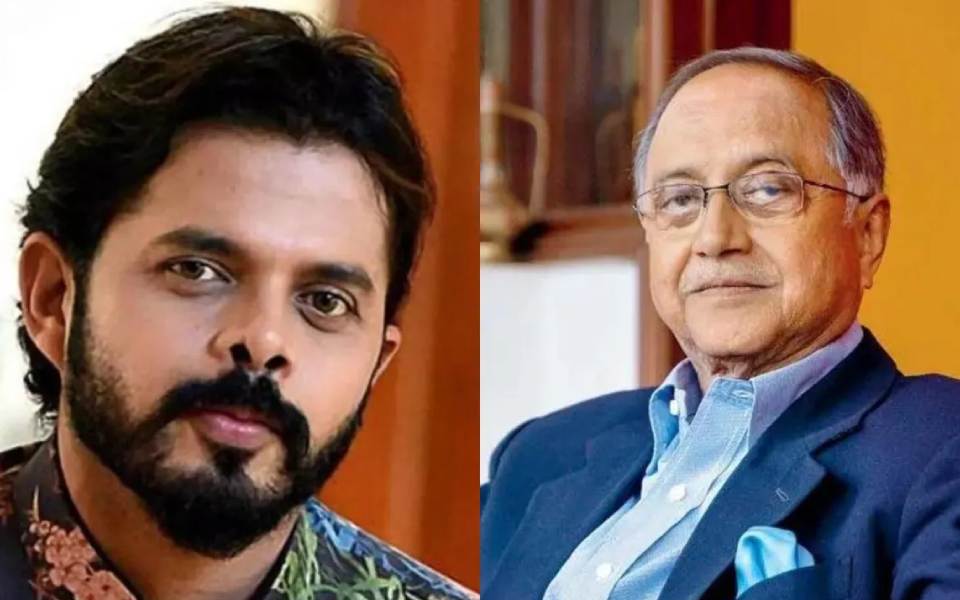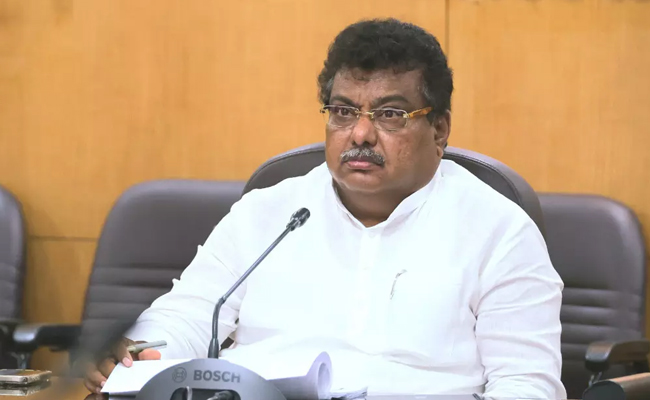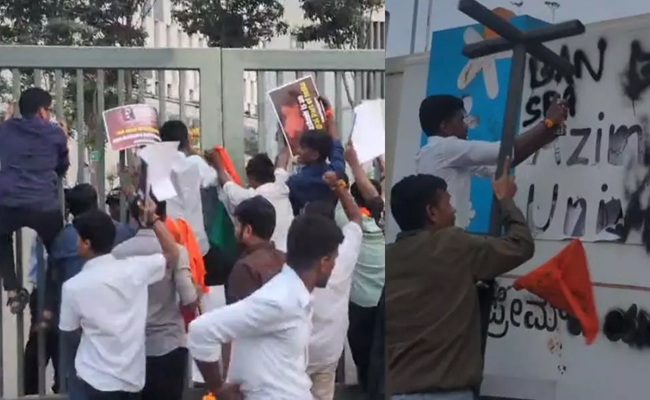New Delhi, Apr 7: Stakeholders have shown a distinct lack of seriousness in bringing a law against corruption in Indian sports, a reason why someone like tainted former pacer S Sreesanth got away despite strong evidence of spot-fixing against him in the 2013 IPL, former Delhi Police Commissioner Neeraj Kumar has said.
Kumar, a celebrated IPS officer who served for 37 years, was in charge of Delhi Police when its Special Cell under his guidance arrested Sreesanth and fellow Rajasthan Royals cricketers Ajit Chandila and Ankit Chavan on spot-fixing charges.
However, in 2019, the Supreme Court, despite ruling that there was evidence against the former India player, asked BCCI to reconsider the life ban on him. The punishment was eventually reduced to a seven-year suspension that ended in September, 2020.
"The case seemingly didn't go anywhere...unfortunately, there is no law (in India) to deal with corruption in cricket or corruption in sports in general," Kumar said during an exclusive interaction with PTI journalists at its headquarters here.
"Even a country like Zimbabwe has specific law. Australia, New Zealand have it...in Europe, there is a law because corruption is there not just in cricket but in football, tennis, golf," said the 70-year-old.
He was also associated with the Hansie Cronje match-fixing scandal in 2000 as part of CBI's investigating team. Kumar said the biggest roadblock in prosecuting corruption in sports is the absence of a law.
"So many things that we do, they do not stand test of judicial scrutiny, for instance. If we say, during match-fixing, people were cheated, now the court will ask, show me one person, who is cheated, produce that person in court," he rued.
"Who will come to the court and say I went to a cricket match expecting fair-play and for everybody to play to his or her potential? So, in the absence of a victim, it becomes very difficult to prove a case," Kumar explained the grey areas.
In India, a law to curb the malice has been in the works since 2013. The Prevention of Sporting Fraud Bill (2013), which was tabled in Lok Sabha in 2018, had a provision for five-year imprisonment and a fine of Rs 10 lakh for those found guilty of sporting fraud, including fixing.
The bill was drafted by Justice (retd) Mukul Mudgal and was seen as a game-changer to curb match-fixing.
It was to replace the 'Public Gambling Act of 1867', under which anyone indulging in betting could be fined only Rs 200 or handed three months in prison.
Sreesanth is back in the mainstream and even played Ranji Trophy for Kerala before retiring from first-class cricket. He is now seen in various Legends' Leagues and also gives expert opinion on various broadcast forums.
"...court has praised the work done by the Police. The judge said special cell has done excellent work...taken great pains to expose this racket, but in absence or vacuum of law, I am not in a position to hold anyone of them guilty and sentence them. These were his exact words."
Kumar, who wrote the book 'A Cop in Cricket' about his experiences handling corruption in the sport, is hopeful that the matter, which has been opened again in the Delhi High Court, will reach its logical conclusion.
"...we have challenged that order and it is now in Delhi HC but it has not proceeded much initially because of COVID but now few hearings have taken place and you shouldn't be surprised if the order is reversed, because we have so much other evidence.
"Sreesanth got reprieve from Kerala HC but it has not said he is innocent."
Kumar also feels that the case against former India skipper Mohammed Azharuddin, who was implicated in the 2000 scandal, "wasn't allowed to be completed".
"...if the Azharuddin case would had been allowed to reach its logical conclusion, some very big names would have been exposed but that was also not allowed.
"...somewhere there is lack of seriousness in dealing with corruption in sport, particularly cricket. Big names did come to light, they were put in a sealed envelope and it still remains sealed in the Supreme Court," Kumar referred to the names that Justice Mudgal's committee submitted to the apex court.
Anti-corruption law in sport needed
Kumar believes that the government can earn goodwill by passing the anti-corruption bill lying in Parliament.
"If we have that law, scenario will change completely, people will not go scot-free. It's a low hanging fruit...I don't know why they are not doing it," he said.
BCCI indifferent to corruption
Kumar also had an opportunity to work as the chief of BCCI's Anti Corruption Unit (ACU) for close to four years and he didn't find the world's richest Board sincere in dealing with corruption.
"...they were totally indifferent to the whole matter of corruption and they didn't give me the necessary resources," he said.
Satisfaction in curbing private leagues
The BCCI provided Kumar only two people for assistance and yet, he said, they managed to clamp down on private leagues which were hot-beds of corruption.
"We did successfully bust many cases...The phenomenon of private leagues, where some people get together and hold a league only to indulge in fixing. We had success in stopping some of them."
The experience left him "quite disillusioned" with cricket in general.
"I stopped watching IPL as I was hugely disappointed. Having worked in BCCI, I am not enamoured by the game as I was at one point in time."
Let the Truth be known. If you read VB and like VB, please be a VB Supporter and Help us deliver the Truth to one and all.
Bengaluru (PTI): Karnataka Minister M B Patil on Tuesday chaired meetings with industry representatives from the aerospace and defence, machine tools, auto/EV, and green energy sectors to discuss sector growth and government support measures.
The meetings were attended by leading industrialists and their representatives, with some participating virtually.
Speaking on the occasion, the minister for Large and Medium Industries said Karnataka is at the forefront of the country’s aerospace and defence sectors.
He noted that Suzuki and Toyota plan to launch aerial taxi services in Japan by 2028, with Bengaluru-based Sasmos supplying electrical equipment for the project.
Industrialists suggested introducing similar “fly-taxi” services in Karnataka through an appropriate policy, which Patil said would be examined seriously.
The minister highlighted the need to establish testing centres and Common Facility Centres for the aerospace and defence industries and assured that these facilities would be provided.
Suggestions were also made to prepare a comprehensive roadmap for sector growth.
Karnataka has urged the Central Government to approve Defence Corridor projects in the Bengaluru North–Kolar–Chikkaballapur and Dharawada–Vijayapura–Belagavi regions.
Industrialists also suggested a corridor between Bengaluru and Mysuru, Patil said.
He said Karnataka aims to become a hub for defence electronics manufacturing, with plans to establish a 200-acre Defence Electronics Park and a 100-acre Avionics and Sensor Park.
These projects will be implemented once the Special Investment Region is operational, and land availability will not be an issue.
On the machine tools sector, Patil said the industry has recorded an annual turnover of Rs 36,500 crore and is witnessing steady growth.
Large-scale exhibitions have increased demand, and the state must strengthen its capabilities to develop control systems for heavy machinery. One testing unit is already operational in Bengaluru, with another planned for Tumakuru. Expansion of vocational training institutes in industrial areas is also underway.
In the Auto and EV sector, Vision Group members highlighted the need for a network of dry ports and more EV charging stations across the state.
Patil noted that the Tata Group is manufacturing EV buses in Dharawada for nationwide supply. Plans for mini excavator production and export facilitation were also discussed, along with the establishment of a testing facility for two-wheeler EVs.
For the Green Energy sector, the group emphasised the need for a suitable policy on battery-based energy storage and the establishment of data centres.
Patil assured that the government will seriously consider all suggestions and respond positively.





_vb_21.jpeg)